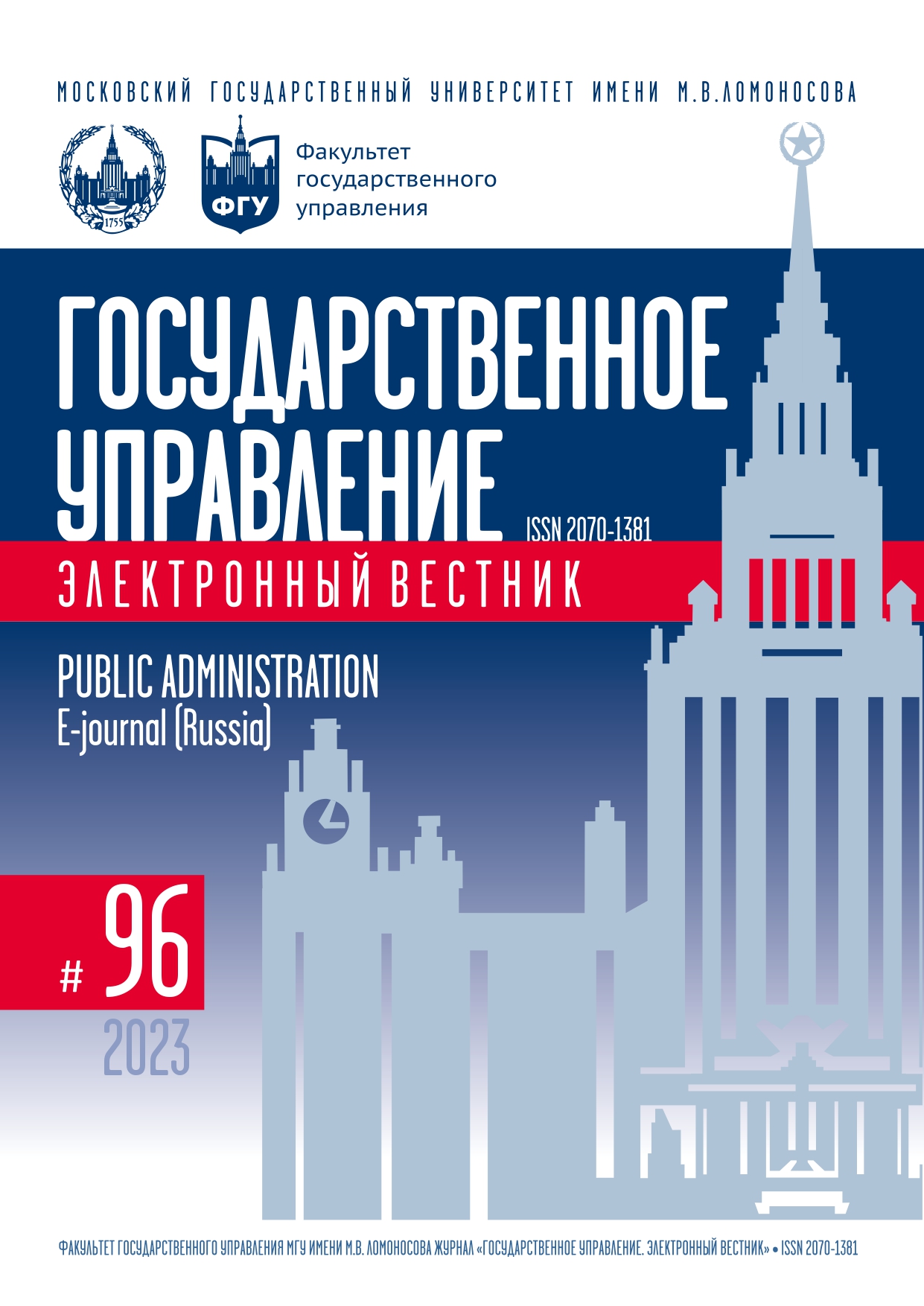The Impact of Sanctions on Russian Manufacturing Enterprises
Keywords:
Sanctions, manufacturing enterprises, investments, production costs, parallel importAbstract
Russian enterprises have been operating under sanctions restrictions since 2014. Earlier they did not have a tangible impact on non-resource sector of economy, and in some ways even contributed to its development. Now sanctions have reached unprecedented proportions and often go beyond reasonable. Restrictions on access to financial resources, a sharp deterioration in the investment climate, difficulties with the purchase of raw materials, equipment and components — this is not a complete list of sanctions’ consequences. The relevance of the work is related to the fact that sanctions against our country are obviously aimed at the long term, and it is very important for manufacturing enterprises with a complex organizational structure to understand how they affect their activities, what restrictions they impose and what opportunities they provide. The article examines the types and instruments of economic pressure, assesses the impact of sanctions on both economics — of a country-object and a country-sender, analyzes the influence of sanctions on the activities of Russian manufacturing enterprises. The study of international and domestic experience of operating under sanctions helped to identify the ways to minimize their economic consequences. The impact of economic sanctions depends on many interrelated factors and the article proposes a causal model characterizing their interaction at the macro and micro levels. The work is of interest primarily for management of manufacturing enterprises, but due to the considered industry-wide aspects of adaptation to sanctions, it may also be useful for enterprises engaged in other fields of activity, including small and medium-sized ones.
References
Гурвич Е.Т., Прилепский И.В. Влияние финансовых санкций на российскую экономику // Вопросы экономики. 2016. № 1. С. 5–35. DOI: 10.32609/0042-8736-2016-1-5-35
Дмитриева Н.И. Экономические санкции как инструмент политического давления // Государственное управление. Электронный вестник. 2015. № 52. С. 120–143. DOI: 10.24411/2070-1381-2015-00062
Нуреев Р.М., Петраков П.К. Экономические санкции против России: ожидания и реальность // Мир новой экономики. 2016. № 3. С. 14–31.
Тимофеева Ю.С. Санкции и принудительные меры США в отношении компаний финансового сектора // Финансовый журнал. 2021. Т. 13. № 4. С. 39–51. DOI: 10.31107/2075-1990-2021-4-39-51
Чистилин Д.К., Переход С.А. Государственное регулирование трансграничных потоков капитала в условиях санкционных ограничений: pro et contra // Государственное управление. Электронный вестник. 2018. № 69. С. 217–242. DOI: 10.24411/2070-1381-2018-00064
Besedeš T., Goldbach S., Nitsch V. Smart or Smash? The Effect of Financial Sanctions on Trade in Goods and Services // Discussion Paper Deutsche Bundesbank. 2022. № 28/2022. URL: https://www.bundesbank.de/resource/blob/894272/b43557666e44fffcac56b190daa86975/
mL/2022-07-12-dkp-28-data.pdf
Cheratian I., Goltabar S., Farzanegan M.R. Survival Strategies under Sanctions: Firm-Level Evidence from Iran Economic // CESifo Working Paper. 2022. № 9568. URL: https://www.econstor.eu/bitstream/10419/252085/1/cesifo1_wp9568.pdf
Davis L., Engerman S. History Lessons Sanctions: Neither War Nor Peace Perspectives // Journal of Economic Perspectives. 2003. Vol. 17. Is. 2. P. 187–197. DOI: 10.1257/089533003765888502
Dziggel O. The Reagan Pipeline Sanctions: Implications for U.S. Domestic Policy and the Future of International Law // Towson University Journal of International Affairs. 2016. Vol. L. Is. 1. P. 129–154.
Geranmayeh E., Rapnouil L.M. Meeting the Challenge of Secondary Sanctions // European Council on Foreign Relations. 2019.
URL: https://www.jstor.org/stable/resrep21492
Ghasseminejad S., Jahan-Parvar M.R. The Impact of Financial Sanctions: The Case of Iran 2011–2016 // International Finance Discussion Papers. 2020. № 1281. DOI: 10.17016/IFDP.2020.1281
Golikova V., Kuznetsov B. Perception of Risks Associated with Economic Sanctions: The Case of Russian Manufacturing // Post-Soviet Affairs. 2017. Vol. 33. Is. 1. P. 49–62. DOI: 10.1080/1060586X.2016.1195094
Guénette J., Kenworthy P., Wheeler C. Implications of the War in Ukraine for the Global Economy // World Bank. EFI Policy Note. 2022. № 3. URL: http://hdl.handle.net/10986/37372
Jiawen C. Why Economic Sanctions on North Korea Fail to Work? World Century Publishing Corporation and Shanghai Institutes for International Studies // China Quarterly of International Strategic Studies. 2022. Vol. 3. Is. 4. P. 513–534. DOI: 10.1142/S2377740017500300
Kwon B.R. The Conditions for Sanctions Success: A Comparison of the Iranian and North Korean Cases // Korean Journal of Defense Analysis. 2016. Vol 28. Is 1. P. 139–161. DOI: 10.22883/KJDA.2016.28.1.009
Li Z., Li T. Economic Sanctions and Regional Differences: Evidence from Sanctions on Russia // Sustainability. 2022. Vol. 14. Is. 10.
DOI: 10.3390/su14106112
Neuenkirch M., Neumeier F. The Impact of UN and US Economic Sanctions on GDP Growth // FIW Working Paper. 2015. № 138. URL: https://www.econstor.eu/bitstream/10419/ 121131/1/N_138.pdf
Oxenstierna S., Olsson P. The Economic Sanctions against Russia. Impact and Prospects of Success // FOI Report No. FOI-R--4097--SE. 2015. URL: https://d1wqtxts1xzle7.cloudfront.net/38622546/foir4097_2-libre.pdf ?1441020781=&response-content-disposition=inline%3B+filename%3DThe_
economic_sanctions_against_Russia_Im.pdf&Exp
Pape R.A. Why Economic Sanctions Do Not Work? // The MIT Press. International Security. 1997. Vol. 22. Is. 2. P. 90–136. DOI: 10.1162/isec.22.2.90
Rai R.K., Srinath J. Parallel Imports and Unparallel Laws: Does the WTO Need to Harmonize the Parallel Import Law? // Journal of World Trade. 2012. Vol 46. Is. 3. P. 657–694.
Teichmann F., Falker M.C. Sanctions against Russia: Implications, Prospects and Circumvention // SEER Journal for Labour and Social Affairs in Eastern Europe. 2020. Vol. 23. Is. 1. P. 109–126. DOI: 10.5771/1435-2869-2020-1-109

